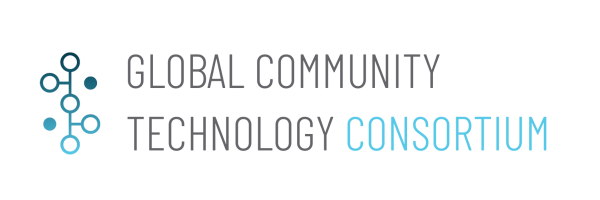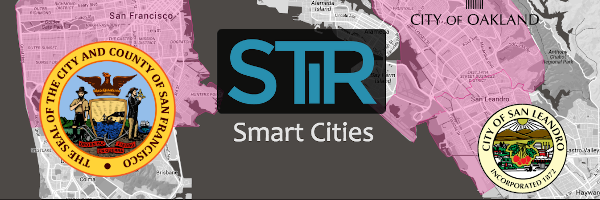CITYDASH City-wide analytics dashboard from public and private data sources: Difference between revisions
Jump to navigation
Jump to search
m (1 revision imported) |
No edit summary |
||
| (4 intermediate revisions by the same user not shown) | |||
| Line 1: | Line 1: | ||
{{ActionCluster | {{ActionCluster | ||
|image=sanleandro_PR_image_5-1.png | |||
| | |team=LotaData | ||
| team | |leader=Anton Batalla, Apurva Kumar | ||
| leader | |imagecaption=CITYDASH | ||
|municipalities=San Leandro CA | |||
|status=Ready for Public Announcement | |||
| imagecaption | |description=Data analytics and insights powered by machine intelligence for 4 target city departments: | ||
| municipalities | |||
| status | |||
| description | |||
Data analytics and insights powered by machine intelligence for 4 target city departments: | |||
* 311 crowd-sourced civic issues | * 311 crowd-sourced civic issues | ||
* Recreation and Parks programs | * Recreation and Parks programs | ||
* Crime reports and police data | * Crime reports and police data | ||
* Building and Engineering permits | * Building and Engineering permits | ||
|challenges=The proliferation of data from mobile apps, cloud computing, sensors and IoT, combined with traditional sources of City data, has created the opportunity for data-driven optimization of city services. However, most cities are taking a siloed approach to data analytics. | |||
| challenges | |solutions=CityDashworks across departments (and datasets), enabling government officials and decision makers to derive insights from public and private data, and to create organizational efficiencies and social impact and by engaging with their data more meaningful and strategic ways. | ||
The proliferation of data from mobile apps, cloud computing, sensors and IoT, combined with traditional sources of City data, has created the opportunity for data-driven optimization of city services. However, most cities are taking a siloed approach to data analytics. | |requirements=* Create project team with City leaders and data science & machine learning experts | ||
| solutions | |||
CityDashworks across departments (and datasets), enabling government officials and decision makers to derive insights from public and private data, and to create organizational efficiencies and social impact and by engaging with their data more meaningful and strategic ways. | |||
| requirements | |||
* Create project team with City leaders and data science & machine learning experts | |||
* Identify sources of public data from city departments for analysis | * Identify sources of public data from city departments for analysis | ||
* Identify relevant sources of data provided by the private sector to be incorporated | * Identify relevant sources of data provided by the private sector to be incorporated | ||
| Line 33: | Line 20: | ||
* Design the UX for visual analytics with maps, charts and graphs | * Design the UX for visual analytics with maps, charts and graphs | ||
* Implement the CityDash web app for desktop and mobile (web) | * Implement the CityDash web app for desktop and mobile (web) | ||
* Pilot CityDash for 3 months | * Pilot CityDash for 3 months | ||
|kpi=* Minimum 5 City KPIs defined for each dataset/department and built into dashboard | |||
| kpi | |||
* Minimum 5 City KPIs defined for each dataset/department and built into dashboard | |||
* CityDash used daily by at least one data analyst/manager or higher in each target department | * CityDash used daily by at least one data analyst/manager or higher in each target department | ||
* Average daily session length of at least 5 minutes | * Average daily session length of at least 5 minutes | ||
* City improvement targets identified in each department and tracking of data enabled (faster response time, increased program revenue, etc) | * City improvement targets identified in each department and tracking of data enabled (faster response time, increased program revenue, etc) | ||
|measurement=* KPI impact measured over a period of 6 months | |||
| measurement | |standards=* Project to include open-data public-facing dashboard with access to raw datasets and files | ||
* KPI impact measured over a period of 6 months | |||
| standards | |||
* Project to include open-data public-facing dashboard with access to raw datasets and files | |||
* Input data to be transformed into well-formed JSON | * Input data to be transformed into well-formed JSON | ||
* Output analysis and insights to be made available as APIs | * Output analysis and insights to be made available as APIs | ||
| Line 52: | Line 33: | ||
* Less than 2 hours/week maintenance from IT departments | * Less than 2 hours/week maintenance from IT departments | ||
* Insights will be used to directly influence city services and programs. As the value of data becomes better understood by city leaders, the program can spread to cover all city depts and datasets and easily be procured by other cities and agencies at the local, state, federal levels | * Insights will be used to directly influence city services and programs. As the value of data becomes better understood by city leaders, the program can spread to cover all city depts and datasets and easily be procured by other cities and agencies at the local, state, federal levels | ||
|impacts=* Increased responsiveness on 311 civic issues and complaints; | |||
| impacts | |||
* Increased responsiveness on 311 civic issues and complaints; | |||
* Improved quality of life in neighborhoods through increased and faster city response and resolution of issues | * Improved quality of life in neighborhoods through increased and faster city response and resolution of issues | ||
* Deeper engagement with residents for city programs | * Deeper engagement with residents for city programs | ||
| Line 62: | Line 39: | ||
* Increased city revenue through better management of recreation programs | * Increased city revenue through better management of recreation programs | ||
* More popular city recreation programs through performance management | * More popular city recreation programs through performance management | ||
|demonstration=* CityDash full implementation completed for 2 city departments | |||
| demonstration | |||
* CityDash full implementation completed for 2 city departments | |||
#311 crowd-sourced civic issues | #311 crowd-sourced civic issues | ||
#Recreation and Parks programs | #Recreation and Parks programs | ||
| Line 71: | Line 46: | ||
#Building and Engineering permits | #Building and Engineering permits | ||
* Desktop version launched with visual analytics and insights for lead city including public-facing version | * Desktop version launched with visual analytics and insights for lead city including public-facing version | ||
|chapter=Digital Twins | |||
| supercluster | |supercluster=Data | ||
| year | |year=2017 | ||
|title=CITYDASH: City-wide analytics dashboard from public and private data sources | |||
}} | }} | ||
Latest revision as of 21:29, January 24, 2023
| CITYDASH City-wide analytics dashboard from public and private data sources | |
|---|---|

| |
 CITYDASH | |
| Team Organizations | LotaData |
| Team Leaders | Anton Batalla Apurva Kumar |
| Participating Municipalities | San Leandro CA |
| Status | Ready for Public Announcement |
| Document | None |
Description
Data analytics and insights powered by machine intelligence for 4 target city departments:
- 311 crowd-sourced civic issues
- Recreation and Parks programs
- Crime reports and police data
- Building and Engineering permits
Challenges
The proliferation of data from mobile apps, cloud computing, sensors and IoT, combined with traditional sources of City data, has created the opportunity for data-driven optimization of city services. However, most cities are taking a siloed approach to data analytics.
Solutions
CityDashworks across departments (and datasets), enabling government officials and decision makers to derive insights from public and private data, and to create organizational efficiencies and social impact and by engaging with their data more meaningful and strategic ways.
Major Requirements
- Create project team with City leaders and data science & machine learning experts
- Identify sources of public data from city departments for analysis
- Identify relevant sources of data provided by the private sector to be incorporated
- Design and develop API-based data pipes and data integrations
- Research and develop machine learning models to infer trends and correlations across the datasets
- Design the UX for visual analytics with maps, charts and graphs
- Implement the CityDash web app for desktop and mobile (web)
- Pilot CityDash for 3 months
Performance Targets
| Key Performance Indicators (KPIs) | Measurement Methods |
|---|---|
|
|
Standards, Replicability, Scalability, and Sustainability
- Project to include open-data public-facing dashboard with access to raw datasets and files
- Input data to be transformed into well-formed JSON
- Output analysis and insights to be made available as APIs
- Frontend development in HTML5, backend development in Java & R
- 100% cloud solution. No on-premise software components
- Less than 2 hours/week maintenance from IT departments
- Insights will be used to directly influence city services and programs. As the value of data becomes better understood by city leaders, the program can spread to cover all city depts and datasets and easily be procured by other cities and agencies at the local, state, federal levels
Cybersecurity and Privacy
{{{cybersecurity}}}
Impacts
- Increased responsiveness on 311 civic issues and complaints;
- Improved quality of life in neighborhoods through increased and faster city response and resolution of issues
- Deeper engagement with residents for city programs
- Higher level of trust in government through open data; resident collaboration
- Increased city revenue through better management of recreation programs
- More popular city recreation programs through performance management
Demonstration/Deployment
- CityDash full implementation completed for 2 city departments
- 311 crowd-sourced civic issues
- Recreation and Parks programs
- CityDash partial implementation for remaining 2 city departments
- Crime reports and police data
- Building and Engineering permits
- Desktop version launched with visual analytics and insights for lead city including public-facing version